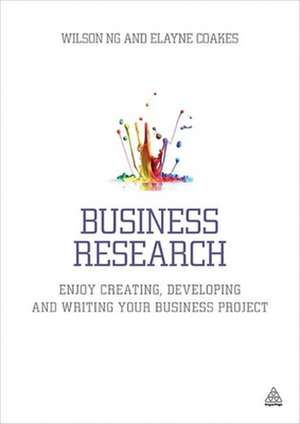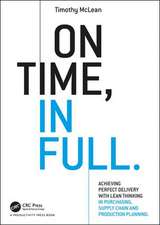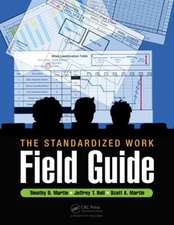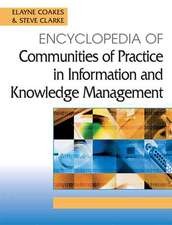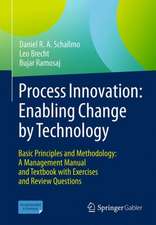Business Research – Enjoy Creating, Developing and Writing Your Business Project
Autor Wilson Ng, Elayne Coakesen Limba Engleză Paperback – 2 noi 2013
| Toate formatele și edițiile | Preț | Express |
|---|---|---|
| Paperback (1) | 435.82 lei 43-57 zile | |
| Kogan Page – 2 noi 2013 | 435.82 lei 43-57 zile | |
| Hardback (1) | 1274.26 lei 43-57 zile | |
| Kogan Page – 2 ian 2015 | 1274.26 lei 43-57 zile |
Preț: 435.82 lei
Preț vechi: 489.69 lei
-11% Nou
Puncte Express: 654
Preț estimativ în valută:
83.42€ • 90.64$ • 70.12£
83.42€ • 90.64$ • 70.12£
Carte tipărită la comandă
Livrare economică 21 aprilie-05 mai
Preluare comenzi: 021 569.72.76
Specificații
ISBN-13: 9780749468958
ISBN-10: 0749468955
Pagini: 232
Dimensiuni: 156 x 232 x 22 mm
Greutate: 0.33 kg
Editura: Kogan Page
ISBN-10: 0749468955
Pagini: 232
Dimensiuni: 156 x 232 x 22 mm
Greutate: 0.33 kg
Editura: Kogan Page
Cuprins
Introduction
What are the right research methods for you and how might you go about selecting them?
PART ONE Planning your project
01 The nature of business research
What is scholarly literature?
What is a research question (RQ) and how do I develop a good one?
How may I use scholarly literature in my project?
How may I use theory?
02 Methodology and methods
What is research methodology?
What has methodology got to do with research methods?
How may I design my research?
How should I use my ‘case study’?
What research methods should I use for my project?
Part Two ‘Doing’ your project
03 The project proposal
Project proposals
Contents of a project proposal
Critical and analytical thinking
Prior planning prevents poor performance
04 Collecting quantitative data
Finding quantitative data
Secondary data
Primary data
Designing a successful survey
Example of literature from which a hypothesis is derived
Methods of collecting survey data
Designing your questionnaire
05 Collecting qualitative data through interviews
Interviewing types and design
Focus groups
Interviewing references and further websites
Chapter appendix: Interview Protocol
06 Collecting data as an ethnographer
Participant observation
Non-participative observation
07 Case study research
Objectives
The case study
Using deductive theory in case studies
Cross-sectional case study design
Longitudinal case study design
Case study tactics adopted for design quality
08 Collecting data: less common methods
Mixed methods research
Social network analysis
Action research
Delphi method
Participant and non-participant observation
How to use crowdsourcing as a research tool
How to use a repertory grid
09 Ensuring data saturation
Validity of quantitative data
Reliability of quantitative data
Signifi cance of quantitative data
Part Three Reporting your findings
10 Analysing quantitative data
Measures of central tendency
Measures of spread
Some notes on statistical testing
Variables: dependent and independent
11 Analysing qualitative data
Coding text
Checking
Causal mapping
Software for coding
Part Four Writing your report
12 Discussing anticipated project findings
Flawed reasoning
13 Conclusion to your report
How to begin your conclusion
Lessons to be learnt
Recommendations
14 Reference lists
15 Writing your abstract
16 Conclusion
Research question
Knowledge of cutting-edge research and theory
Research tools
Notă biografică
Wilson Ng leads and delivers business research methods modules for undergraduate and postgraduate students at the University of Roehampton. He is a Visiting Professor at two European universities: UNICA (Universita degli studi di Cagliari) in Italy and BEM (Bordeaux Management School) in France. Prior to his academic career, Wilson was a senior investment banker with NM Rothschild in London and Singapore. Elayne Coakes has taught business research methods at the University of Westminster for many years. Her consultancy experience in large and small enterprises has provided Elayne with extensive applied business experience.
